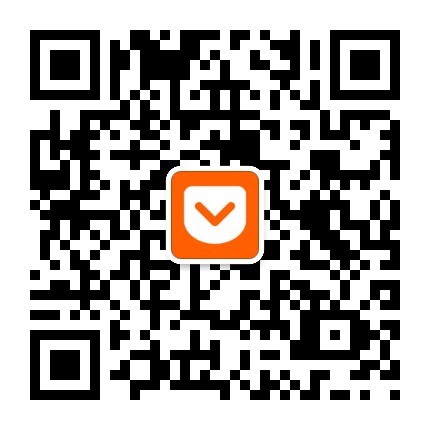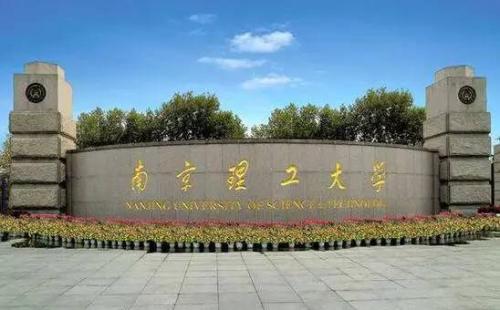



You can share it to WeChat via the QR code.
The First International Conference on Mechanical System Dynamics (1st ICMSD) will be held from August 24 to 27, 2022 in Nanjing, China, in hybrid mode (in person and online).
The conference is hosted by the Nanjing University of Science & Technology (NJUST), Chinese Society of Theoretical and Applied Mechanics (CSTAM), the International Association of Applied Mechanics (IAAM), Wiley, Chinese Society of Launch Dynamics (planned) and International Journal of Mechanical System Dynamics. It is jointly organized by 20 universities worldwide, co-hosted by 34 universities and institutes, and supported by National Nature Science Foundation of China. The vision of the conference is to bring together different kinds of research to enhance multidisciplinary interaction, and to ultimately promote development of mechanical system dynamics to a higher level. It is pleased to invite prospective scientists to attend the 1st ICMSD.
Mechanical system dynamics is one of the pillars of almost all industries such as machinery, aero & astronautics, marine engineering, transportation, biology, etc. It is the key technology for almost all industrial equipment. It plays a significant role in leading the development of modern science and technology and receives increasing attention worldwide. The standing International Conference on Mechanical System Dynamics (ICMSD) aims to systematically reveal the vital effect of mechanical system dynamics on the whole lifetime of modern industrial equipment. It serves as a standing international forum for promoting the extensive and in-depth academic exchange on dynamics concerning advanced theory, modeling, computation, analysis, software, design, manufacturing, testing, and evaluation of general mechanical systems. The standing ICMSD is jointly initiated and organized by more than 20 famous universities from more than 10 countries. It will be held every odd-numbered year, with its headquarter located at Nanjing University of Science and Technology (NJUST) and, in principle, held in different countries on a rotating basis.
Considering the worldwide governmental restrictions on traveling, gathering, and meeting to prevent the spread of COVID-19 virus, the first ICMSD, which was originally planned on 26th to 29th November 2021 but postponed to 12th to 18th August 2022, will be held in a hybrid mode (in person and online). It is jointly organized by 20 universities worldwide, hosted by Nanjing University of Science & Technology (NJUST), The Chinese Society of Theoretical and Applied Mechanics (CSTAM), International Association of Applied Mechanics (IAAM), Wiley, Chinese Society of Launch Dynamics (planned) and International Journal of Mechanical System Dynamics, co-hosted by 34 universities and institutes, and supported by National Nature Science Foundation of China.
The First International Conference on Mechanical System Dynamics will be held on August 12-18, 2022 in Nanjing, China. The following information about the schedule is for your reference:
Tips:
[1] Participants: China Ordnance Society, China Association for Science and Technology, Committee Members of the planned Chinese Society of Launch Dynamics, Nanjing University of Science and Technology.
[2] Participants: State Administration of Science, Technology and Industry for National Defence, Department of Science and Technology of the Ministry of Industry and Information Technology, Scientific Committee Members of MIIT Key Laboratory for Complex Equipment System Dynamics, Nanjing University of Science and Technology.
[3] Participants: Ministry of Education, Scientific Committee Members of MoE Frontiers Science Center for Complex Equipment System Dynamics, Nanjing University of Science and Technology.
[4] Participants: Standing Steering Committee Members of ICMSD, Editorial Board Members of IJMSD, John Wiley and Sons, Inc., Nanjing University of Science and Technology.
[5] Participants: Preparatory Committee Members of ISMSD, John Wiley and Sons, Inc., Nanjing University of Science and Technology.
* The outline programme is shown on this page. A more detailed programme will be emailed to you after registration deadline. Actual time arrangement may be a little different according to participant numbers.
Typical topics of mechanical systems dynamics include, but are not limited to:
GT01 Modeling, computation, and software developments
Formulation of multibody system or finite element system dynamics with characteristics such as time varying parameters, time delay, nonlinearity, large deformation, friction, contact and impact, fatigue and fracture, multiscale
Dynamics modeling of multi-disciplinary systems such as mechatronic system, smart materials/structures system, multi-agent system, human-machine integrated system, and biomechanical system
Dynamics modeling of mechanical systems integrated with electronic, electrical, optical, thermal, magnetic, acoustic, aero, rheological, and fluidic components, etc
Nonlinear vibrations and nonlinear dynamics of mechanical systems and structures, structural vibration at different scales
Dynamics modeling combined with advanced applied mathematics methods such as fractional-order modeling, model order reduction, surrogate models, mixed first-principles and data-integrated modeling
Dynamics simulation techniques such as co-simulation, high-performance computing
Novel numerical algorithms for mechanical system dynamics
Aspects of uncertainty, robustness, sensitivity, safety, and reliability
Verification, validation & accreditation theories and methods
Development and application of open-source/commercial software regarding visualization & computer graphics, database and data sharing
GT02 Design, optimization, diagnostics, and control
System engineering and multi-disciplinary design
Multi-disciplinary optimization, topology optimization, multi-objective optimization, etc
Health monitoring, fault diagnosis and prediction
Smart sensing and actuation
Model-based control or combined with data-driven control
Vibration and noise control, trajectory planning and motion control
GT03 Measurement and testing
Modal testing and analysis
Measurement techniques for vibrations and dynamics response
Embedded system and hardware-in-the-loop simulation
Signal analysis & processing
Inverse problem/system identification
GT04 Applications of mechanical system dynamics to
Manned/unmanned aerial vehicles, underwater/surface/amphibious ships, tracked/wheeled vehicles, high-speed trains, robots, machine tools, wind turbines, civil structures, etc
Production process of energetic/polymeric material
Advanced manufacturing and production such as additive manufacturing, 4D printing, virtual manufacturing, 3D assembly
Coming Soon!
1. Timing: a maximum of 15 minutes total, including speaking time and discussion. Please make sure your presentation is well timed. Please keep in mind that the program is full and that the speaker after you would like their allocated time available to them.
2. You can use CD or USB flash drive (memory stick), make sure you scanned viruses in your own computer. Each speaker is required to meet her/his session chair in the corresponding session rooms 10 minutes before the session starts and copy the slide file(PPT or PDF) to the computer.
3. It is suggested that you email a copy of your presentation to your personal inbox as a backup. If for some reason the files can’t be accessed from your flash drive, you will be able to download them to the computer from your email.
4. Please note that each session room will be equipped with a LCD projector, screen, point device, microphone, and a laptop with general presentation software such as Microsoft PowerPoint and Adobe Reader. Please make sure that your files are compatible and readable with our operation system by using commonly used fronts and symbols. If you plan to use your own computer, please try the connection and make sure it works before your presentation.
5. Movies: If your PowerPoint files contain movies please make sure that they are well formatted and connected to the main files.